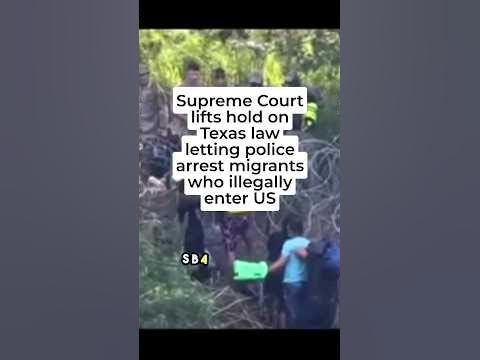

The Supreme Court has allowed Texas law enforcement to arrest migrants who illegally cross the US-Mexico border, lifting a previous hold on the controversial measure. This decision has sparked debate over immigration policies and the role of states in enforcing federal laws. Critics argue it could lead to increased racial profiling and violations of due process.
In a recent development, the Supreme Court has lifted the hold on a Texas law that allows police officers to arrest migrants who illegally enter the United States. The law, known as Senate Bill 4, was passed in 2017 and has been highly controversial due to its harsh stance on immigration enforcement.
The decision by the Supreme Court to lift the hold on the law comes after years of legal battles and challenges from immigrant rights groups and civil liberties organizations. The law allows police officers in Texas to question the immigration status of individuals they detain or arrest and to cooperate with federal immigration authorities.
Critics of the law argue that it will lead to racial profiling and discrimination against immigrants, while supporters believe it is necessary for public safety and to enforce immigration laws. The Supreme Court’s decision to lift the hold on the law is seen as a victory for supporters of stricter immigration enforcement.
The lifting of the hold on Senate Bill 4 is likely to have far-reaching consequences for immigrants in Texas and could set a precedent for other states seeking to enact similar laws. Immigrant rights groups have vowed to continue fighting against the law and are exploring all legal options to challenge its implementation.



